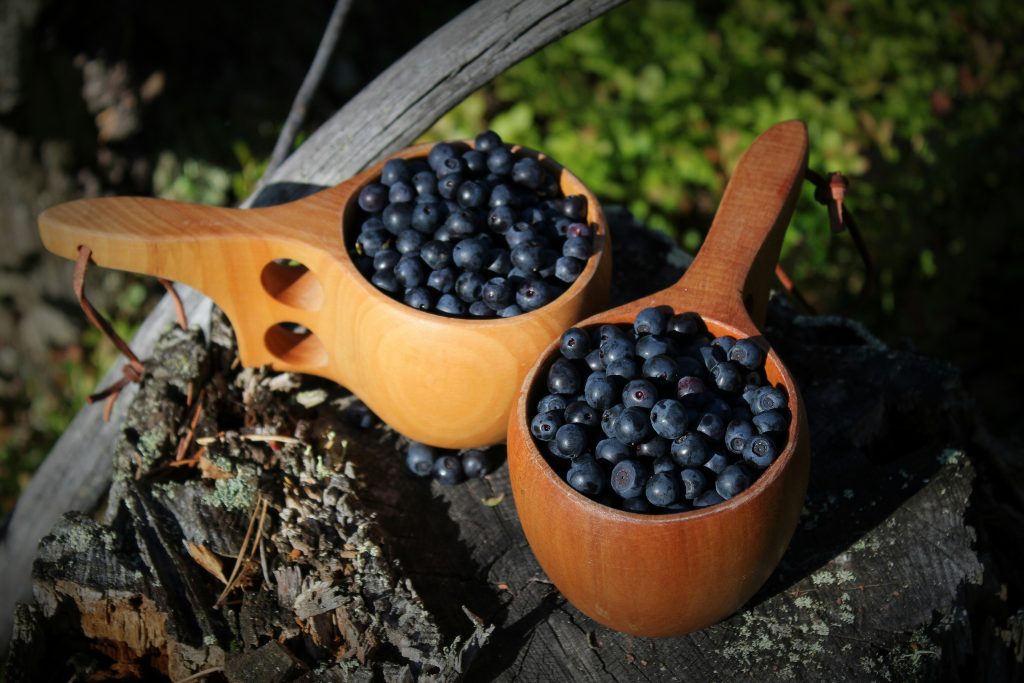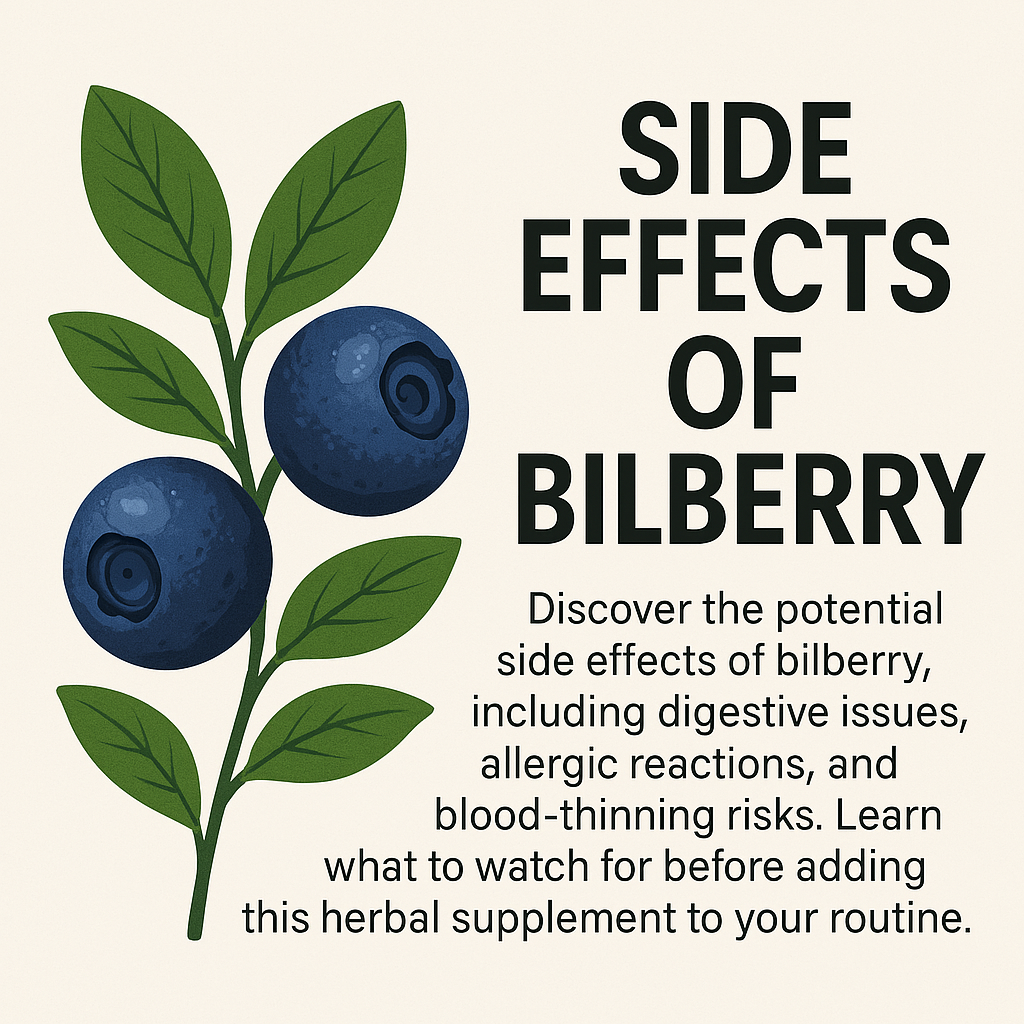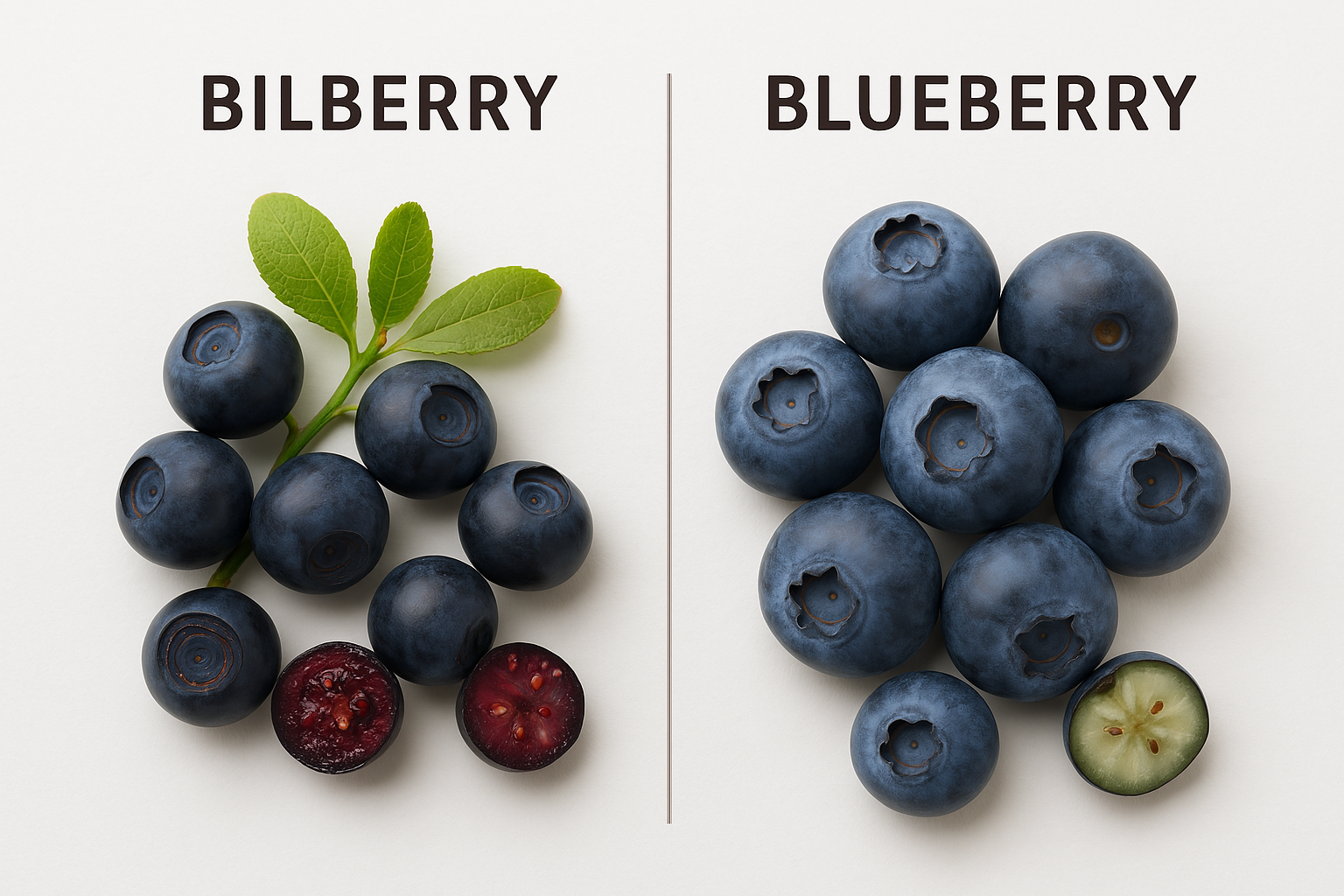People regularly ask “does bilberry help vision?”. Some say British pilots ate them during World War II to see better at night. But is there any truth to this?
Let’s take a closer look.

What Are Bilberries?
Bilberries are like wild blueberries. They grow in parts of Europe and are packed with natural antioxidants, especially a group called anthocyanins (the same stuff that gives the berries their dark blue color). (The most popular Anthocyanin is OPC).
These antioxidants may help protect your eyes from damage, especially as you age.
How Bilberries May Help Your Eyes
Night Vision
Some older stories say bilberries help you see better in the dark. While that sounds cool, science says the effect is small or uncertain. You probably won’t get night vision superpowers, but they might help a little with adjusting to low light.
Tired Eyes from Screens
If your eyes get tired or dry from staring at screens all day, bilberry supplements might help. Some studies show they can:
- Reduce eye strain
- Make your eyes feel less dry
- Help you focus better
Eye Health as You Age
Bilberries may help keep your retina (the part of your eye that helps you see clearly) healthy. They might slow down problems like:
- Macular degeneration (vision loss as you age)
- Diabetic eye issues
But bilberries won’t replace your regular treatment—they’re more of a helper, not a cure.
Bilberry Really Helps the Retina
The retina is constantly exposed to light and oxygen, which generates free radicals that can damage cells over time. Bilberry’s anthocyanins act as antioxidants, neutralizing these harmful molecules.
This may slow the aging process of retinal tissue and reduce the risk of conditions like macular degeneration or diabetic retinopathy
Anthocyanins help strengthen capillaries and improve blood flow in the tiny vessels that feed the retina. This is crucial because the retina needs a rich supply of nutrients and oxygen to function properly.
Better circulation = better nourishment and waste removal for retinal cells.
Chronic inflammation can damage the retina, especially in diseases like diabetes or hypertension. Bilberry compounds may reduce inflammatory markers, protecting the retina from further damage.
Rhodopsin is a light-sensitive protein in the retina (especially in rod cells) that helps you see in low light. Some studies suggest bilberry anthocyanins can speed up the regeneration of rhodopsin after it breaks down in bright light, supporting night vision and dark adaptation.
In conditions like diabetic retinopathy, blood vessels in the retina can leak, causing swelling and vision loss. Bilberry may help stabilize capillary walls, reducing the chance of fluid leakage into retinal tissue.
What the Research Says
- A 2015 clinical trial found improved retinal blood flow in people taking bilberry extract.
- Some lab studies show reduced retinal cell death under stress when treated with anthocyanins.
- Research on diabetic patients suggests bilberry may help slow the progression of vision complications when combined with other therapies.
Any Side Effects?
Not really. Bilberries are usually safe when eaten as food or taken as a supplement in normal amounts.
But watch out for:
- Upset stomach or gas
- Dizziness or headache (rare)
- Possible allergies (especially if you’re sensitive to berries)
And if you’re taking blood thinners or diabetes medicine, check with your doctor first — bilberry might affect how your medicine works.
The Bottom Line
Bilberries are tasty, safe, and full of eye-friendly antioxidants. They may help reduce eye strain, support aging eyes, and offer a little boost to night vision. But don’t expect dramatic results — and always talk to your doctor if you take medications.
A Little Bit Deeper Research
There is so much to learn in the world of resveratrol, antioxidants, superfoods and wine. This is the place to start, no matter what, if you indeed are looking to maximize your health and live longer.
 |
Side Effects of Bilberry In the game of Majority Wins . . . the days of Andy Griffith would quickly come to an end. |
 |
Blueberry vs Bilberry Despite their likeness, these berries differ significantly in their nutrient profiles, medicinal uses, and notably, their resveratrol content. |
 |
What are Blueberries Health Benefits? In the world of antioxidants, resveratrol and the OPC’s in blueberries are the superheros. |
